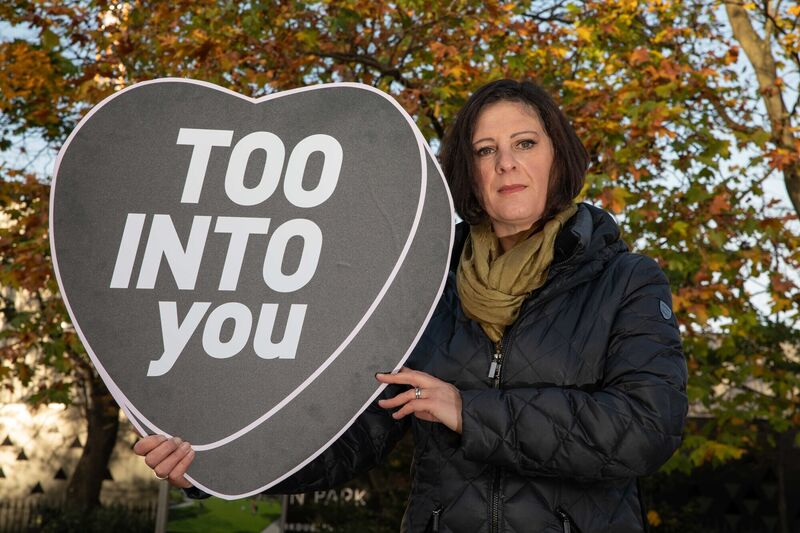One in six young women suffer coercive control by partner

Women’s Aid says there is a gap in knowledge among young people about what coercive control is. Picture: iStock
“If it feels wrong, it probably is — and it’s worth talking about."
This was the message from Women’s Aid, as the organisation launched a new website to provide support for young people who are victims of coercive control.
The site, toointoyou.ie, aims to teach people about the signs of intimate relationship abuse, and to raise awareness of the red flags of an unhealthy relationship.
Mary Hayes, who leads the Too Into You project at Women’s Aid, said: “The campaign is to teach young people, particularly young women, aged 18 to 25, that relationship abuse is common but there are specific supports available for people facing abuse. Abuse happens in many ways.
"Of the one in five who’ve been abused, nine in 10 were subject to emotional abuse," she said.
Women’s Aid said there is a gap in knowledge among many young people about what coercive control is, as it published figures to suggest that one in five young people aged 18-24 had never heard of the term.
Furthermore, one in six young women have been subjected to coercive control by a current partner or ex, as have one in 13 young men.
“Emotional abuse can be exceptionally draining,” Ms Hayes said. “It can be being put down, being criticised, being harassed, being monitored, things like that."

The Too Into You campaign lists other signs that a relationship could be unhealthy, such as a partner being jealous, leaving someone feeling on edge, always checking up on them, or threatening to share intimate images or videos without consent.
Ms Hayes said information is also available for advice for friends who may see someone they know in such a situation.
“There are tips and skills there on how to broach that conversation,” she said.
“When you’re experiencing abuse, your world can get very small. So it’s about keeping that connection with friends.”
Women’s Aid chief executive Sarah Benson said it is important for people in this situation to know that coercive control is a criminal offence.
She encouraged anyone who is worried about themselves or somebody they know, to look at the resources available and reach out to their instant messaging support service or national freephone helpline.
“If you really feel that things are at a serious, high-risk situation please contact the gardaí,” she said.
“We encourage people to watch out for their friends, to watch out for their loved ones, because sometimes when you're in an abusive relationship it is confusing and you don't know what's going on.
“You can't see the wood for the trees, and that's part of the abuse. So, we all need to be there to help say this isn't normal. You're entitled to say no, you're entitled to go out with your friends.”
Ms Benson added that legislative change to provide more protection to abuse victims has represented progress, but she had concerns that the Online Safety and Media Regulations Bill may lack 'teeth' in relation to intimate image-based sexual abuse.









